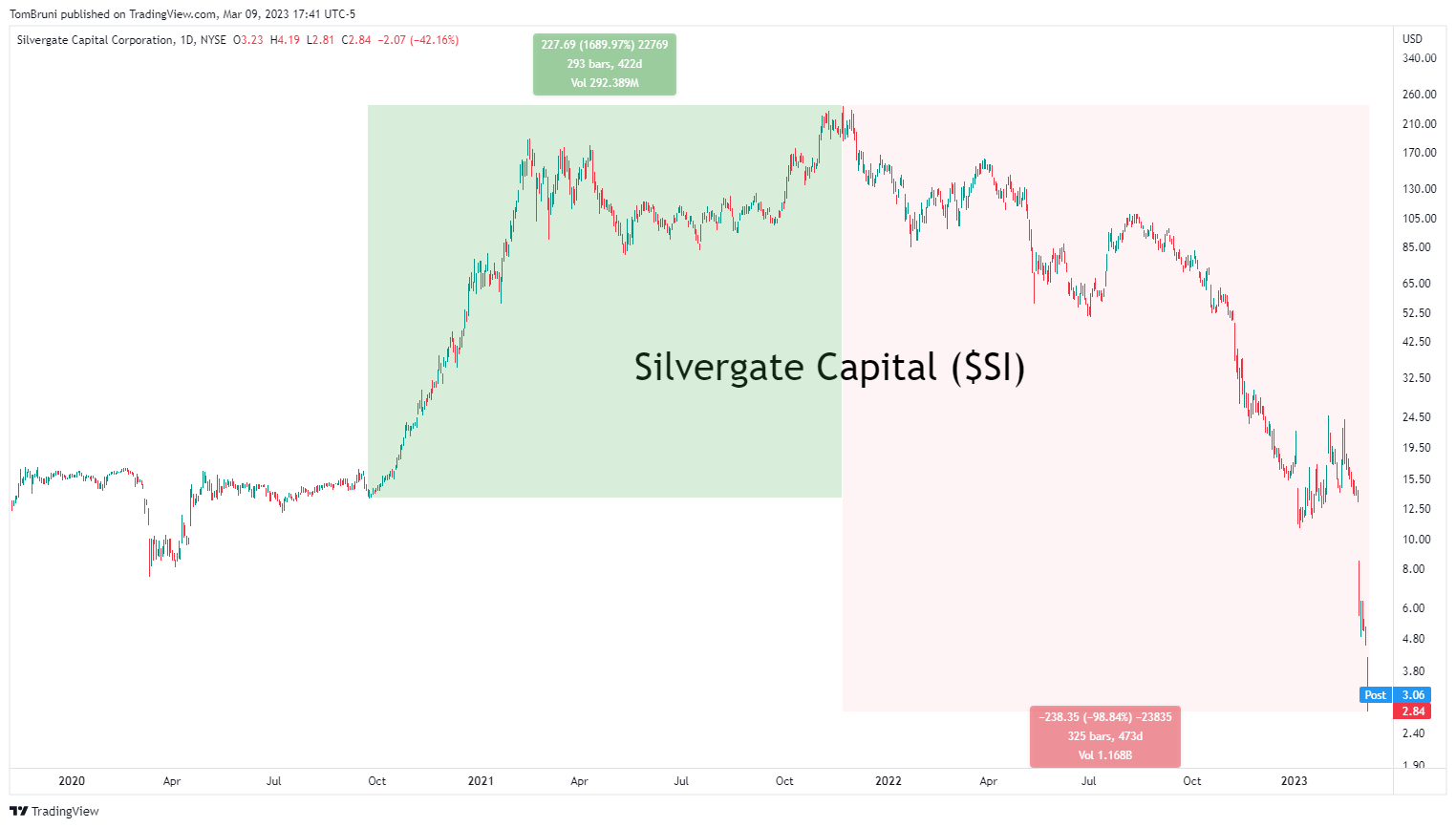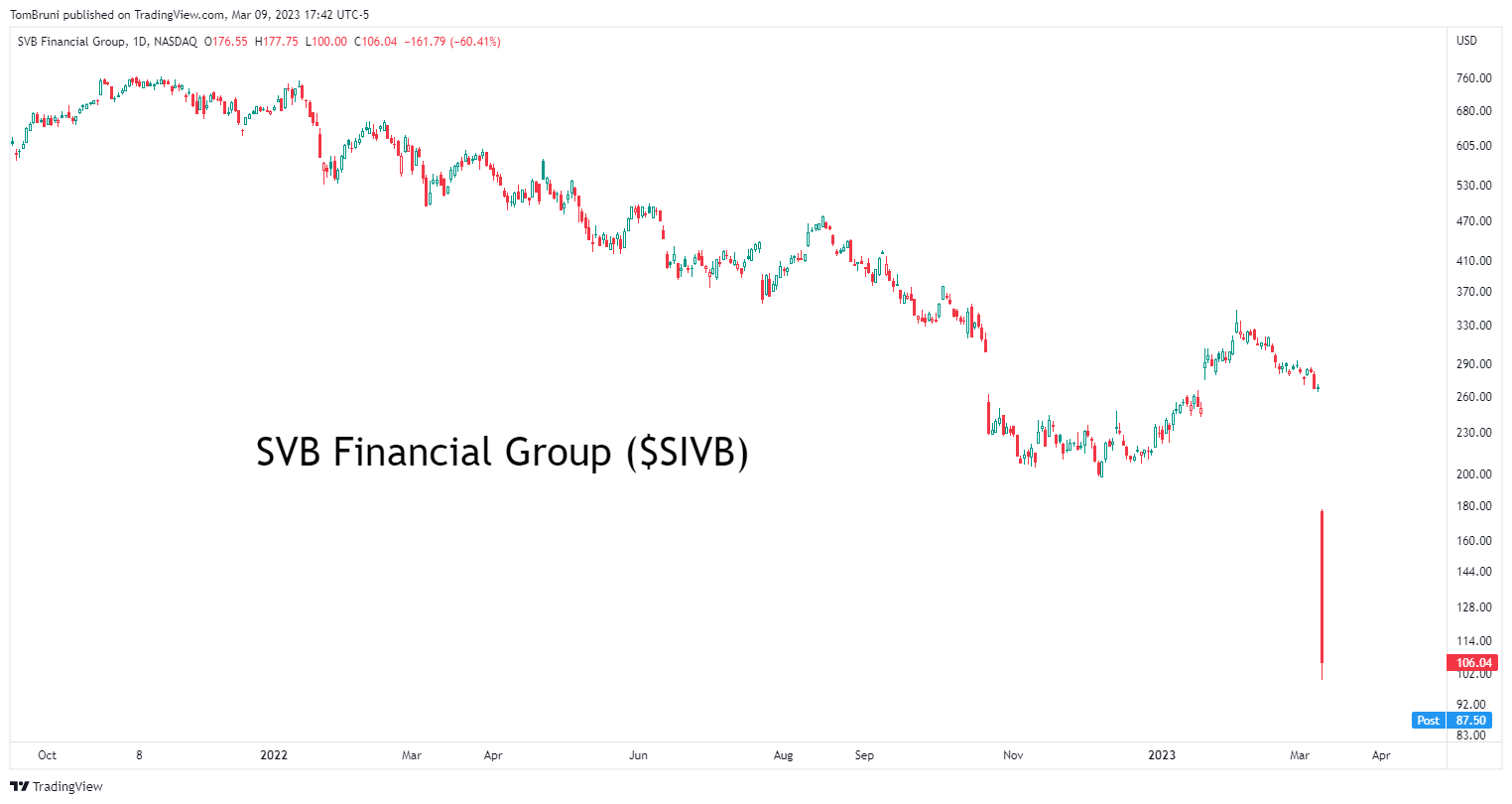When crypto and fintech enthusiasts talked about a bankless future, we don’t think this is what they meant… 🤔
Yesterday Silvergate Capital plunged after hours because it told investors it would shut down its operations and liquidate the bank. This comes just a week after the company filed a notice that it would delay its annual report filing due to business and regulatory challenges. 📰
The crypto-focused bank experienced a meteoric rise during the bull market but saw billions of deposits leave amid falling confidence in the industry’s prospects. $SI shares had already fallen more than 95% from their 2021 highs but continued their decline today to fresh all-time lows. 📉

As if that wasn’t enough to spook the market, Silicon Valley Bank added to the market’s hysteria. As its name suggests, its institution services early-stage businesses, serving as the banking partner for nearly half of U.S. venture-backed tech and healthcare companies that went public in 2022. 🤖
With that said, the sharp reversal in private and public market valuations over the last two years has put tremendous pressure on its clients. That reduced the number of deposits the bank had on hand and left it struggling to keep up as other institutions raised interest rates to attract and retain capital. It also left the bank on the hook with debt and other investments that have plummeted in value.
Apparently, its troubles were worse than investors initially realized. Today, the company announced that it’s selling $1.75 billion in shares and liquidated a $21 billion portion of its “available for sale” investments at a $1.8 billion after-tax loss to shore up its balance sheet. 💰
The news sent $SIVB shares down 60% in the regular session and another 20% lower after hours. 🔻

Overall, confidence is the name of the game in the banking industry. If depositors, investors, and other stakeholders lose confidence in a bank’s ability to stay solvent/liquid, a bank run could ensue. And given how interconnected today’s financial institutions are, fears over the entire industry’s health are spreading. 😱
Whether those fears are warranted or not is up for debate. But when it comes to people’s money, they tend to act first and ask questions later. “Better safe than sorry” becomes a form of due diligence…and understandably so. 💸
Financial stocks and ETFs tracking the sector experienced sizable declines today. $XLF fell 4%, $KRE declined 8% on its highest volume ever, and on and on. The overall impact of these events on the market remains to be seen. But what’s clear is that with the sector accounting for ~11% of the S&P 500’s weighting, this news will likely weigh on sentiment in the short term.
We’ll cover this more as the story develops and the market implications become clearer. 🤷
